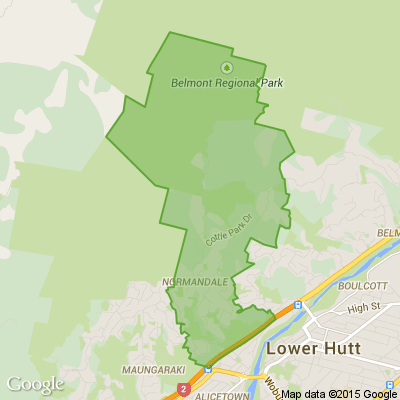4 ways to say(and get)what you want in your relationship
In my work with couples, I’ve noticed that most people have an easy time describing what they don’t want in their relationship:
If someone prompts them, they’re able to rapidly fire off the many issues that they feel are creating distance between their partner and themselves.
Yet if I ask the same people what they do want in a relationship, or from their partner, it seems to catch them off guard.
The answer comes far less easily, as they pause to reflect on a question they haven’t necessarily asked themselves, at least not in a long time.
As a relationship matures, it’s easy to focus on its problems. We can catalog all the negative patterns that have arisen or all the frustrating qualities a partner has.
Thus, when we communicate with a partner, we often say what we don’t want instead of what we do. Somehow, it’s easier to complain or vocalize dissatisfaction than to directly state or ask for what we desire.
Many couples are comfortable telling each other, “You never do this," "Why are you always forgetting what I say to you?" "How can you be so insensitive?” or, “Do you ever stop thinking about yourself?” They’re not as comfortable slowing down and saying, “It makes me feel so much more relaxed when I have help with this or that," or, “I really want to feel you listen and understand.”
Unfortunately, most people automatically take a defended self-protective stance in relation to the inevitable hurts they experience with their partner. They fail to recognize that when they experience strong emotional reactions to a perceived slight by a partner that they are often reacting based on unresolved issues from their childhood. They have little awareness that this style of relating is moving them further from the outcome they want.
Rather than say what they want, they shut down or turn inward. They may feel quietly resentful toward their partner or indulge in destructive thoughts toward themselves. They may have critical inner voices telling them they are unworthy or trying to convince them that they will experience humiliation, hurt, or rejection if they go after what they want. In either of these reactions, the person is avoiding expressing, or sometimes even acknowledging, his or her basic wants and desires.
Saying what you want is a powerful tool to end a fight. It helps you avoid hurtful ways of relating to your partner that might put him or her on the defensive. It's also a way of being vulnerable that allows your partner to know and feel for you. When you speak about your wants honestly, directly, and from an adult point of view, your partner is more likely to be open, responsive, and personal in return.
Here are a few approaches that can help you get what you need in your relationship:
1. Practice unilateral disarmament.
This is a technique I often introduce to couples that is valuable to implement in heated moments when an argument is going nowhere.
If the goal is to be close to your partner, there are times when it is best to simply drop your side of the dynamic.
You can do this by first calming down within yourself, refusing to lash back, and instead saying something warm and honest like, “I care more about feeling good with you than winning this argument.” Taking these steps often softens the other person, and he or she, too, is more likely to drop his or her side of the dynamic.
You can then communicate from a more direct, vulnerable stance that isn’t about blame or being right.
You can start to cleanly express what you want and encourage your partner to do the same.
2. Stay vulnerable.
It’s hard for many people to say what they want out loud, or even admit it to themselves. When you do express your wants, it’s important to do it directly but from a vulnerable place.
Try not to speak in an entitled manner, as if you’re demanding something, or using words like “I deserve.” When someone in a relationship acts like their partner owes them something, they tend to fall into traps in which they find themselves nagging or complaining, both of which only serve to alienate or irritate a partner.
3. Don’t use victimized language.
Refusing to act victimized is an important principle in general. When you talk about what you want, steer clear of speaking in ways that sound victimized or childish.
No one can or should expect any one other person to meet all their needs. Rather, you should strive to feel like a whole person in yourself. Of course, it’s natural to want to feel love and connection, but there’s an important difference between saying what you want as an adult and feeling like a dependent child whose survival depends on your partner giving you what you need.
4. Avoid “you” statements.
One way people diverge from saying what they want directly is by switching from “I” statements to “you” statements.
Many people tend to be more comfortable saying, “You don’t act excited to see me anymore," or, "You’re always distracted.” It is valid to give your partner feedback, but if all he or she hears is a stream of complaints, it is more likely to drive them away than to get them to move closer to you.
On the other hand, the exercise of saying what you want is about expressing something about who you are and what matters to you.
That’s why it is better to start with “I": “I want to feel wanted by you.” “I want your attention.” “I want to have fun with you.” “I want to feel that you listen.”
This helps you to have more feeling and understanding toward yourself, while hopefully inspiring the same reaction in your partner.

Poll: Do you think NZ should ban social media for youth?
The Australian Prime Minister has expressed plans to ban social media use for children.
This would make it illegal for under 16-year-olds to have accounts on platforms including TikTok, Instagram, Facebook and X.
Social media platforms would be tasked with ensuring children have no access (under-age children and their parents wouldn’t be penalised for breaching the age limit)
.
Do you think NZ should follow suit? Vote in our poll and share your thoughts below.

-
85.2% Yes
-
13.8% No
-
1% Other - I'll share below
scumbags
There are some really awful people around at the moment. This is what happened on Sunday.
We live in Hinemoa Street opposite the Waiwhetu Stream. At around 3.40 in the afternoon I was looking out my window and saw a car pull up and start to feed the geese and ducks out the window. Then The passenger an asian man jumped out and threw himself onto a goose. he picked it up and put it the boot of the car.
I immediately ran over and stood in front of his car to stop him moving I also called my husband to help. A lovely man was riding his bike and saw it and stopped to help me. The driver tried to drive into me but I didnt move. He tried telling us it was his pet. These are wild geese.
They had a cage in the boot and some wire all ready to catch the poor bird like they have done it before. My husband took the bird from the car and released it. I then moved out of the way and after lots of abuse from the driver they drove off threatening to come back and get more.
No one should be allowed to take these beautiful birds and certainly not like this. they are all starting to have wee babies at the moment the whole thing was so upsetting to me. Another neighbour further down the road also saw it all happen.
Please keep a look out for this car and if you see them by the stream go over and watch them lets all stop this happening.
Seasonal Home Check-Up Reminder! 🔍
Hi everyone!
As the seasons change, it’s time to think about your home’s exterior. Inspecting for cracks, peeling, or other signs of wear is crucial to maintaining your property. Small issues can lead to bigger problems if not addressed.
If you notice any concerns, don’t hesitate to reach out! At Texturite, we specialise in repairs and restorations to ensure your home stays protected from the elements.
📞 027 341 3454 📍 Serving the Kapiti / Wellington region










 Loading…
Loading…




















